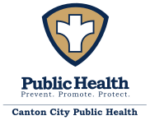Overview
Position Overview
The Illinois Department of Public Health is seeking a highly motivated individual to perform complex specialized secretarial and clerical office support duties, record and document processing, exercising independent judgment, for the Office of Immunizations, Emergency Medical Services and back up to the Administrative Law Judge. Performs specialized assignments keyboarding correspondence, forms and reports.
Essential Functions
- Provides complex specialized secretarial and clerical office support functions for the professional staff in Immunizations, Emergency Medical Services and back up for the Administrative Law Judge.
- Prepares travel vouchers for professional staff.
- Serves as a switchboard operator.
- Prepares and sends outgoing mail.
- Distributes monthly telephone reports to staff for review and ensures completion before submitting paperwork to Springfield.
- Serves as a back-up clerical staff for the Administrative Law Judge. When necessary, prepares Assisted Living and Nursing Home ITDs (Involuntary Transfer and Discharge) file with label, Notice of Prehearing information, Proof of Service, sending out certified mailing to all parties, scanning and uploading reports to Springfield.
- Performs other duties as required or assigned which are reasonably within the scope of those enumerated above.
About Illinois Department Public Health
In Illinois, if you have eaten at a restaurant ... required hospital or nursing home care ... vacationed at a campground or swam at a public beach or pool ... drank a glass of milk ... got married or divorced ... had a baby, the Illinois Department of Public Health (IDPH) has touched your life in some important way.
Assuring the quality of our food, setting the standards for hospital and nursing home care, checking the safety of recreation areas, overseeing the inspection of milk producing farms and processing plants, maintaining the state's vital records and screening newborns for genetic diseases are just some of the duties of IDPH.
In fact, IDPH has 200 different programs that benefit each state resident and visitor, although its daily activities of maintaining the public's health are rarely noticed unless a breakdown in the system occurs. With the assistance of local public health agencies, these essential programs and services make up Illinois' public health system, a system that forms a frontline defense against disease through preventive measures and education. Public health has provided the foundation for remarkable gains in saving lives and reducing suffering. Today, life expectancy is 80 years for women and 74 years for men compared with fewer than 50 years at the at the beginning of the 20th century.
In the past, IDPH directed state efforts to control smallpox, cholera and typhoid, virtually eliminated polio, reduced dental decay through fluoridation of community water supplies, and corrected sanitary conditions that threatened water and food supplies.
Today, IDPH has programs to deal with persistent problems that require continued vigilance – infectious diseases, such as AIDS (acquired immunodeficiency syndrome), HIV (human immunodeficiency virus), SARS (severe acute respiratory syndrome) and meningococcal disease; foodborne and communicable diseases, such as E. coli 0157: H7, monkeypox, salmonella and West Nile virus; vaccine preventable diseases; lead poisoning; lack of health care in rural areas; health disparities among racial groups, breast, cervical and prostate cancer; Alzheimer's disease; and other health threats -- sexually transmitted diseases, tobacco use, violence, and other conditions associated with high-risk behaviors. In addition, IDPH has been charged with handling the state's response to the COVID-19 pandemic and the threat of bioterrorism.
IDPH, which is one of the state's oldest agencies, was first organized in 1877 with a staff of three and a two-year budget of $5,000. IDPH, now has an annual budget of $2.9 billion in state and federal funds, headquarters in Springfield and Chicago, seven regional offices located around the state, three laboratories, and 1,200 employees.
IDPH is organized into 12 offices, each of which addresses a distinct area of public health. Each office operates and supports numerous ongoing programs and is prepared to respond to extraordinary situations as they arise.



